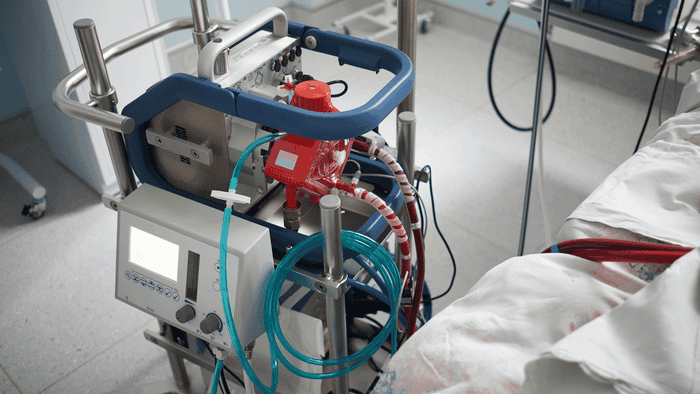
An Arizona man is the first person in his state, and one of the first in the country, to survive the coronavirus after being given a last ditch blood treatment known as extracorporeal membrane oxygenation therapy (ECMO).
ECMO had just recently been approved for increased usage to combat COVID-19. To give an idea as to how rare it is, to this point only about 10 people worldwide have survived the coronavirus thanks to the therapy.
The treatment works by helping blood bypass damaged lungs by sending it through tubes to an artificial lung, where carbon dioxide is removed and oxygen is added. Blood is then pumped back into the body with an artificial heart.
53-year-old Enes Dedic was given ECMO as a last resort while on a ventilator in a Phoenix medical center. The Arizona Republicreports that Dedic awoke after 10 days in a medical coma. He was responsive and FaceTimed with his wife.
He had initially sought medical aid a few weeks after traveling overseas. Prior to that, he had sat at home after developing symptoms, such as: fevers, chills, aches, and nausea. Upon seeking treatment, Dedic was transferred to a Phoenix hospital, and had his ventilation increased. He also received every drug doctors think may treat the virus, including the anti-malarial hydroxychloroquine.
One of the reasons ECMO is so rare (beyond the scarcity of machines) is that it has a high mortality rate (40 percent). Dedic's doctors labeled that rate "extraordinarily high for almost any medical procedure," and thus it's seen as a final course of action after all other hope is lost.
"At that point, it was either ECMO or death for him," trauma and clinical care surgeon Dr. Ace Ovil said of Dedic's condition at the time. "Even though ECMO is a risky procedure and has some associated potential risks, we felt like we needed to give him a fighting chance of surviving his disease."
ECMO machines have been in usage for several years, but they're rare to have on hand. According to a cardiothoracic surgeon who spoke to the Republic, there's roughly one ECMO machine for every 50-100 ventilators. During the pandemic the machines could be used for patients no longer responding to ventilators, though doctors believe that there may not be enough of them to handle the volume of those in need if the treatment indeed proves successful in saving others with COVID-19.
